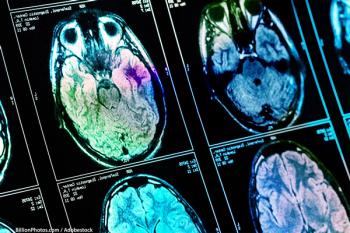
- ONCOLOGY Vol 16 No 1
- Volume 16
- Issue 1
Enforced Data Collection on Brain Tumors
Legislation that would force all states to collect data on benign brain tumors got a hearing before a House subcommittee in mid-November. That was the critical first step needed before Rep. Barbara Lee (D-Calif), the measure’s sponsor, could
Legislation that would force all states tocollect data on benign brain tumors got a hearing before a House subcommittee inmid-November. That was the critical first step needed before Rep. Barbara Lee(D-Calif), the measure’s sponsor, could start pushing her bill throughCongress. Rep. Lee’s bill (H.R. 239) would make it mandatory for all states tocollect data on the incidence of primary brain tumors (whether malignant orbenign) in their state registries. Those registries get funding from, and passtheir data along to, the Centers for Disease Control and Prevention (CDC) viathat agency’s National Program of Cancer Registries.
The CDC spent about $36million in fiscal 2001. At present, 21 state registries already collectmalignant brain tumor data, but the other 29 do not. Rep. Lee estimates that theCDC would have to spend an additional $1 million to prod the 29 states tocollect the desired data.
Brain tumors are the second leading cause of cancer death inchildren as well as the third leading cause of cancer death in young adults aged15 to 34 years, although approximately half of all brain tumors are consideredbenign. Nationwide, the incidence of brain tumors has increased by 25% since1975, for unknown reasons. Survival rates in women diagnosed with so-calledbenign meningiomas are lower than those for women with breast cancer.
Articles in this issue
about 24 years ago
Management of Patients at High Risk for Breast Cancerabout 24 years ago
World’s Largest Breast Cancer Treatment Trial Supports Anastrozole Useabout 24 years ago
New Director of the National Cancer Institute Appointedabout 24 years ago
Battle Over Physician-Assisted Suicide Continuesabout 24 years ago
New Treatment for Stomach Cancer Patients Shows Promiseabout 24 years ago
Endoscopic Ultrasound in the Diagnosis and Staging of Pancreatic Cancerabout 24 years ago
Endoscopic Ultrasound in the Diagnosis and Staging of Pancreatic Cancerabout 24 years ago
Endoscopic Ultrasound in the Diagnosis and Staging of Pancreatic Cancerabout 24 years ago
Using Thalidomide in a Patient With Epithelioid Leiomyosarcoma andNewsletter
Stay up to date on recent advances in the multidisciplinary approach to cancer.




































